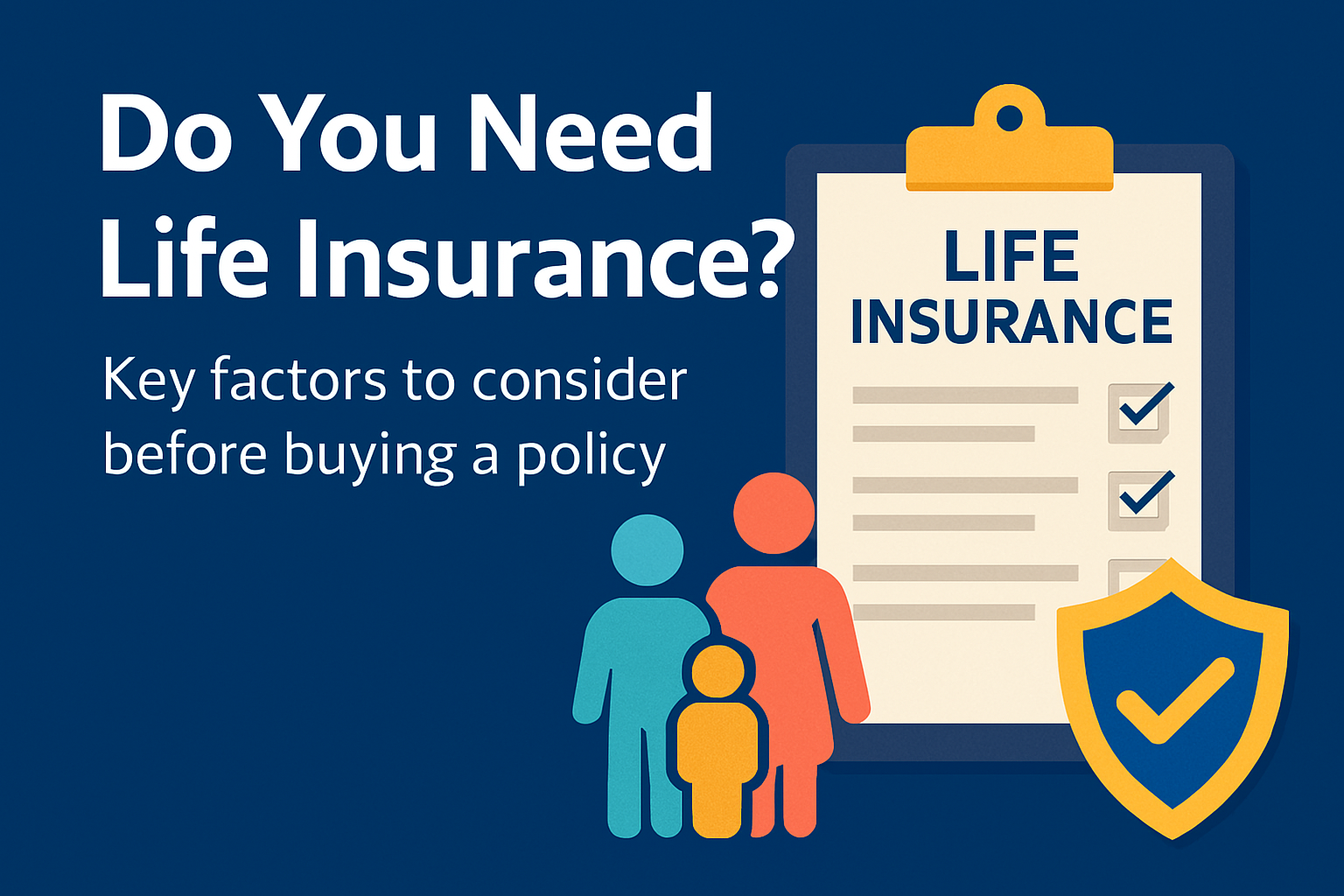
Deciding whether you need life insurance is one of the most important financial decisions you can make. While the answer varies from person to person, understanding your financial responsibilities, future obligations, and overall goals can help you determine if life insurance is the right choice for you.
Assessing Your Financial Needs
Protecting Your Loved Ones
The primary purpose of life insurance is to provide financial security for your dependents in the event of your death. If you have a spouse, children, or other family members who rely on your income, life insurance can help cover living expenses, pay off debts, and ensure that your loved ones maintain their standard of living. For example, if your family depends on your income to cover everyday expenses, a life insurance policy could serve as a crucial safety net.
According to the Insurance Information Institute, life insurance is designed to replace lost income and help your family manage ongoing financial needs after you’re gone.
Managing Debt and Financial Obligations
Consider all of your financial responsibilities, including:
- Mortgage or Rent: Life insurance can pay off your mortgage or provide funds for housing.
- Credit Card Debt and Loans: Ensuring that your debts are cleared can prevent your family from being burdened with these obligations.
- Future Expenses: This includes costs such as college tuition for your children, healthcare expenses, and other long-term financial needs.
A thorough evaluation of your liabilities versus your current assets and savings can help determine the amount of coverage you might need.
Long-Term Financial Planning
Estate Planning
Even if you don’t have immediate dependents, life insurance can be a useful tool for estate planning. It can provide your heirs with a tax-free inheritance, cover estate taxes, and even fund a trust for future generations. For more detailed guidelines on estate planning, the National Association of Insurance Commissioners (NAIC) offers valuable resources.
Building a Legacy and Financial Flexibility
Some people choose life insurance not only for protection but also for its potential as a long-term financial asset. Permanent life insurance policies—such as whole life or indexed universal life—build cash value over time through compound interest. This cash value can serve as a source of funds during your lifetime, whether to supplement retirement income or to invest in other opportunities. Strategies like Infinite Banking highlight how life insurance can be used to gain control over your money and increase financial flexibility.
The American Council of Life Insurers (ACLI) notes that many individuals incorporate life insurance into their overall financial strategy, not just as a safety net but as a means to build and preserve wealth over the long term.
Evaluating Your Personal Situation
Age, Health, and Income
Your age and health are significant factors in determining whether you need life insurance. Younger, healthier individuals typically pay lower premiums and might consider a policy as part of their long-term financial plan. However, if you’re older or have existing health issues, securing life insurance might be more expensive—but it could still be essential if you have dependents or significant debts.
Additionally, if you have a stable income and sufficient savings, you might be able to self-insure for certain risks. However, even those with robust savings often find that life insurance provides an extra layer of security and peace of mind.
Personal Goals and Lifestyle
Reflect on your long-term goals:
- Do you want to ensure that your family is financially secure if something happens to you?
- Are you planning for significant future expenses, such as your children’s education or retirement?
- Would you benefit from the cash value accumulation offered by permanent life insurance as part of strategies like Infinite Banking?
If your answers lean toward needing protection and financial flexibility for your dependents or future obligations, life insurance is likely a worthwhile investment.
Conclusion
So, do you need life insurance? The answer depends on your unique circumstances. If you have dependents, significant debts, or long-term financial goals, life insurance can provide essential financial security and peace of mind. It not only ensures that your loved ones are cared for financially but also offers potential benefits for estate planning and long-term wealth accumulation.
Before making a decision, consider your current financial situation, future obligations, and personal goals. Reviewing resources from the Insurance Information Institute, the NAIC, and the American Council of Life Insurers can help you make an informed decision. Additionally, consulting with a trusted financial advisor will ensure that you choose a policy that aligns perfectly with your needs.
Life insurance is a powerful tool that can protect your family, help manage your financial obligations, and even serve as a long-term asset. Understanding your personal situation is key to determining whether life insurance is the right choice for you.





